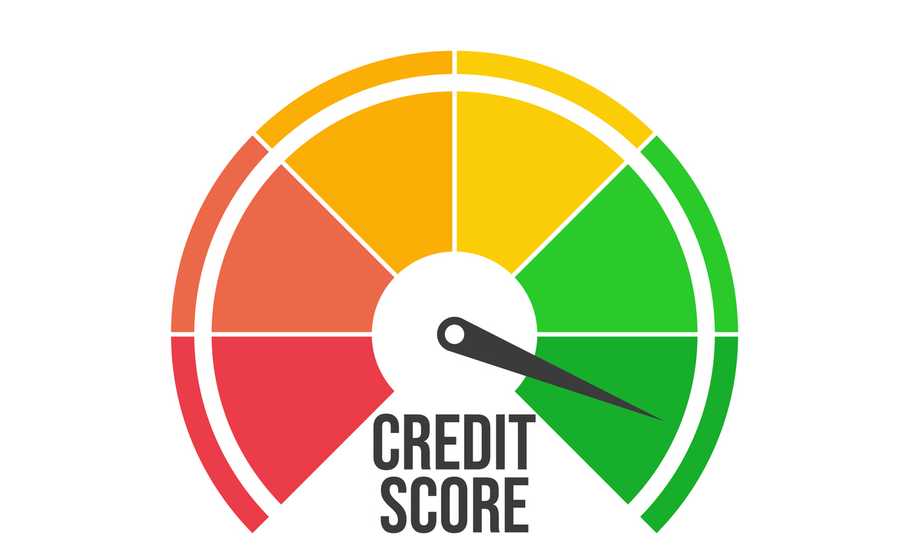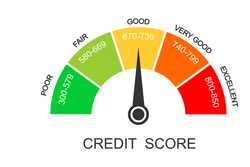What is a Good Credit Score?

Our evaluations and opinions are not influenced by our advertising relationships, but we may earn a commission from our partners’ links. This content is created by TIME Stamped, under TIME’s direction and produced in accordance with TIME’s editorial guidelines and overseen by TIME’s editorial staff. Learn more about it.
Like it or not, your credit score matters. Without a good credit score, you’ll have trouble qualifying for loans or credit cards. This could limit your ability to make a large purchase (such as a house or a car) or pay for unexpected expenses (like a medical bill or auto repair). So, what is a good credit score and how can you work on improving your score?
The two credit scoring models—FICO Score and VantageScore—have slightly different ranges for good credit scores, but in general, anything over 670 can be considered good. Read on to learn more about credit score categories, the different scoring models, and how you can boost your credit score with a few simple behavior changes.
Credit scores can range from a low of 300 to a high of 850. But what is considered a good score versus a bad one? There are several brackets your credit score can fall into, from bad to excellent. These brackets can give you a better idea of your current score and the score you would need to move up a bracket.
There are two main credit scores lenders can use to determine creditworthiness: FICO and VantageScore. Each has slightly different brackets for credit scores, but in general, you can assume the following scores fall within the bad, fair, good, and excellent brackets for most lenders.
A “bad” credit score is one that falls between 300 and 600. If your score is in this range, you may have trouble qualifying for loans and credit cards. However, as you reach the top end of this range, you should start to have an easier time getting credit. Regardless, it’s advisable to work on improving your credit score if it falls within the “bad” range.
If your credit score falls between 600 and 670, it’s considered “fair.” A fair credit score is a step up from a bad credit score, but you may still find that you can only qualify for a loan or credit card with a high interest rate. It’s a good idea to continue improving your financial behavior and aim to move up to the “good” credit score bracket.
A “good” credit score falls between 670 and 780. Once you reach this bracket, you’ll find it easier to be approved for credit cards and loans and should find that you’re offered more reasonable interest rates. This bracket is a good place to be, although there is still room for improvement.
Finally, a credit score between 780 and 850 is considered “excellent.” If your credit score falls within this range, you’ll likely be fielding credit card offers left and right and have no trouble qualifying for loans. But it’s important to continue practicing good financial behavior once you reach the “excellent” bracket, as it can be easy to slip back down with a few missed payments.
FICO Scores range from 300 to 850. FICO has five categories for credit scores, including poor, fair, good, very good, and exceptional. Each category and its credit score range are shown in the table below.
| Category | Credit Score Range |
|---|---|
Poor | 300 to 579 |
Fair | 580 to 669 |
Good | 670 to 739 |
Very good | 740 to 799 |
Exceptional | 800 to 850 |
VantageScore also ranges from 300 to 850, with five categories into which credit scores can fall: Very poor, poor, fair, good, and excellent. Below are the credit score ranges associated with each VantageScore category.
| Category | Credit Score Range |
|---|---|
Very poor | 300 to 499 |
Poor | 500 to 600 |
Fair | 601 to 660 |
Good | 661 to 780 |
Excellent | 781 to 850 |
Before you apply for any type of loan or line of credit, it’s important to know what your credit score should be in order to qualify for the best terms and rates. Below is some information on how good your credit score should be for different loan products.
There is no minimum credit score requirement for a car loan, and some lenders may have low credit score requirements. However, the trade-off is a higher interest rate. In general, it’s a good idea to have a credit score of at least 670 before applying for a car loan to avoid paying too much interest.
The credit score requirement for a mortgage depends on the type of loan for which you’re applying. The most common loan types and their credit score requirements are as follows.
With so many credit cards available, there’s an option for just about anyone, regardless of credit score. However, the best credit cards are aimed at those with “good” or “excellent” credit scores, and they tend to come with perks and benefits that other cards may lack.
For example, the card_name card has a bonus category in which you can earn 5% cash back. The category changes quarterly but often includes everyday purchases such as groceries or gas. If your credit score isn’t in the good range, you probably won’t qualify for this card.
Similarly, the card_name requires a good or excellent credit score.If you qualify you’ll enjoy 3% cash back on entertainment purchases such as dining, entertainment, and streaming services. In addition, you can bonus_miles_full.
There’s no minimum credit score needed to rent an apartment. However, a landlord may choose to run a credit check and use the information in your credit report to decide whether to rent to you. Landlords might look at payment history to make sure you pay your bills on time as an indication of whether you would be likely to miss a rent payment.
If your credit score is on the low end of the range, don’t panic just yet. It is possible to get a good credit score in a few months by implementing some of the following tips.
A credit monitoring service can help you keep tabs on your credit score as you work on improving it. With services such as MyFICO and Experian, you can set up an account and track your credit report so you can catch any discrepancies early and address them before they have a detrimental effect on your credit score. Some credit monitoring services are free, while others may have a monthly or annual fee. Regardless of which you choose, using such a service can benefit your credit score in the long run.
One of the easiest ways to build your credit is to make payments on time. That includes housing costs, utilities, and credit cards. Failure to make timely payments can have a negative impact on your credit score. Utilizing automatic payments and checking to make sure they go through each month can help you avoid any nasty surprises. Payment history is the biggest scoring factor with both FICO and VantageScore.
It’s never a good idea to max out your credit cards, and doing so can negatively affect your credit score. FICO and VantageScore both look at how much credit you have used of your available credit, and using too much can be detrimental. Try to keep your credit utilization below 30% of your total credit limit to help boost your credit score.
A secured credit card can be a useful tool to help you build your credit. Whether you have a short credit history or a low credit score, a secured credit card can help boost your score and put you in a better position to qualify for loans and credit cards in the future. Secured credit card providers usually don’t run a credit check as part of their application process—instead, the lender will require you to make a cash deposit when you open the account, and that amount will often determine your credit limit. By using the card and making payments on time, you can see an improvement in your credit score in a relatively short amount of time.
When you apply for a traditional credit card, the lender will run a credit check to determine whether or not to approve your application. That credit check is considered a hard pull and will negatively affect your credit score by a few points, though not permanently. If you apply for too many cards in a short period of time, the effect can be noticeable. It’s best to be strategic when you apply for credit cards to make sure you don’t accidentally lower your credit score.
Even if you no longer use the first credit card you ever opened, it’s smart to keep it open. FICO and VantageScore both consider the length of your credit history, which includes the age of your oldest and newest accounts. Keeping that old line of credit open can benefit your credit score—even if you never use it again.
In general, anything over 670 is generally considered to be a good credit score. Having a high credit score can make it easier to qualify for loans and lines of credit with reasonable terms and interest rates. If your score falls below 670, take steps to improve it now so you won’t be plagued with a bad credit score for years to come.
Credit scores can change slightly throughout the month for many reasons. If you notice your credit score decreases, check to see whether you missed a utility or credit card payment. If everything looks good, ask yourself the following questions.
There are several things you can do to improve your credit score.
When it comes to finding out your current credit score, you have a number of options.
The information presented here is created by TIME Stamped and overseen by TIME editorial staff. To learn more, see our About Us page.



